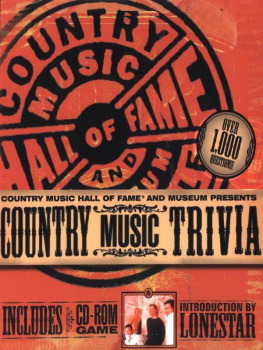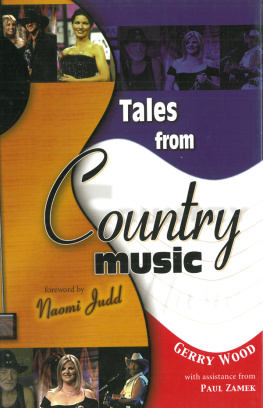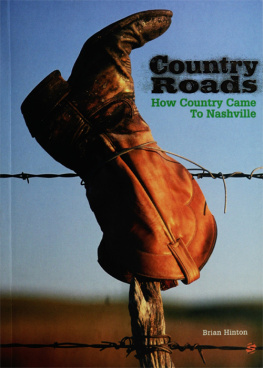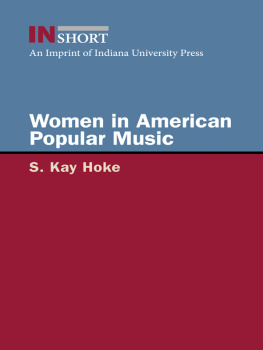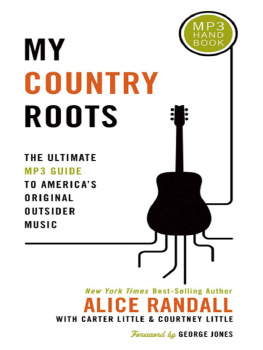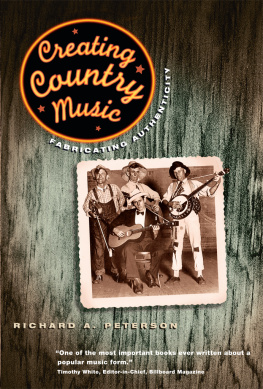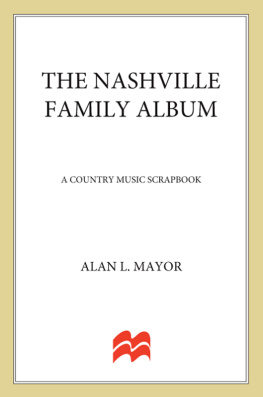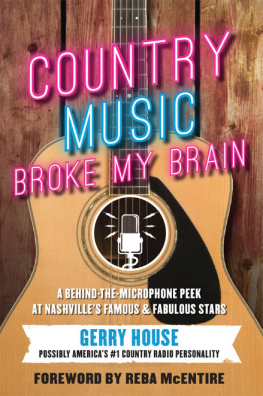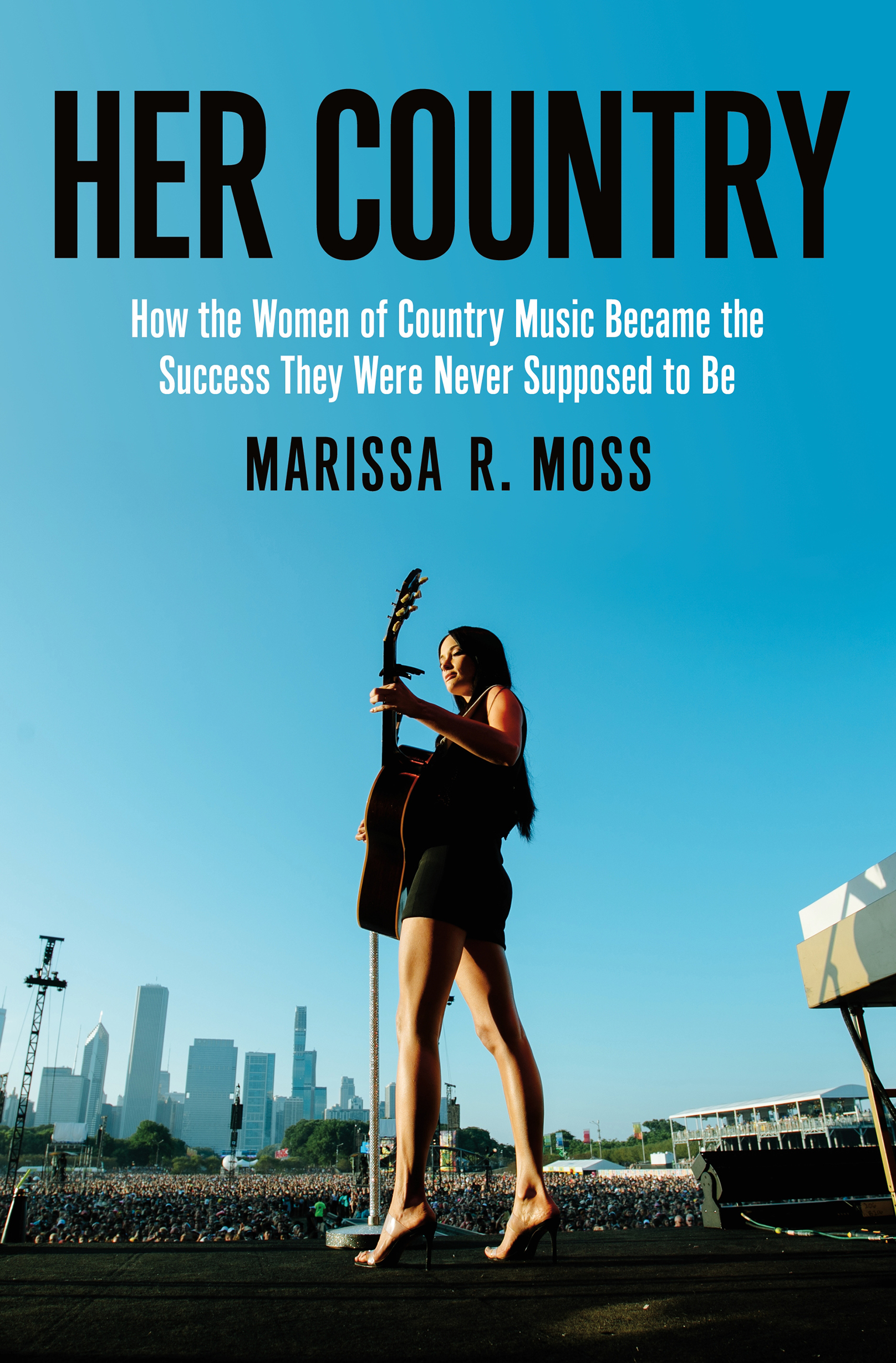Contents
Guide
Pagebreaks of the print version

The author and publisher have provided this e-book to you for your personal use only. You may not make this e-book publicly available in any way. Copyright infringement is against the law. If you believe the copy of this e-book you are reading infringes on the authors copyright, please notify the publisher at: us.macmillanusa.com/piracy.
For anyone who needs to be reminded that its your country music, too
Im trying to burn this good-ol-boy system down to the ground.
Mickey Guyton, Rolling Stone, 2021
Its been done so many times, that drive from Texas to Tennessee, that their dreams had just as significant a chance as cars to end up wrecked along the interstate, broken before they even had a shot at getting where they planned to go. That wide expanse of untraveled road; the impatient ticking of traffic signs and mileposts; the long, restless stretches between breaks for a soda or restroom; the twisting of the radio knobs, scanning for something familiar; the guitars that sit awkwardly in the trunk, blocking any decent sight lines out the windowwhich is fine, because who wants to look back anyway?
They come ready for the world to open up, with a song or a notebook or ten years of toiling away at bars and honky-tonks, down the highways and past the towns of the working people theyre supposed to write lyrics about, sometimes filled with singers just like them who never could save up enough money to fill that gas tank for the trip to Nashvilledreams tucked under mattresses like old photos and secret diaries. But Maren Morris, Kacey Musgraves, Mickey Guyton, and so many women like them came ready to play and take a gamble on those dreams: they came because, at one point, it seemed like women were the sun in the center of the country music solar system. And they had something to say to help keep the world turning.
This story begins in 1999, the year that Shania Twain, reigning superstar, took home the Entertainer of the Year trophy at the CMA Awards. The biggest hit on country radio was Faith Hills Breathe. Chely Wright, an artist who would later be pushed out of the genre for coming out as lesbian, was enjoying the success of her song Single White Female. The Chicks (ne the Dixie Chicks) were one of the most successful bands not only in country music, but well beyond. Theyd just played feminist touring festival Lilith Fair, with fiddle player Martie Maguire fiercely wielding her instrument in a crop top, already angering the Nashville institutions to the point that her trios eventual expulsion for speaking out against the president would come as a relief to some, not just a surprise.
It felt, for a minute at least, that this was a paradigm that could never shift. And if you were a girl growing up in Texas, Tennessee, or even Pennsylvania, country music didnt seem unattainable. It didnt seem out of reach for Maren, Kacey, or Mickey, or for thousands of young girls who turned on the radio during the car ride home from school, to hear voices like theirs on the speakers as the Texas plains whirled past their windows and their breath fogged the glass, their imaginations anywhere but in that back seat.
And how could you blame them for envisioning a certain kind of path? Back when Maren first started performing as an old soul in Dallas bars, when Mickey fell in love with country stardom while watching LeAnn Rimes at a baseball game and Kacey formed her duo, the Texas Two Bits, and began singing and yodeling in harmony across the Lone Star State, you could wake up as a little girl in Texas, Oklahoma, California, or anywhere in America, and think country music was for you. Thats because you could hear the voices of women on the radio, in the kitchen, or in the back seat of the car, and dream as the road unfolded ahead.
It was watching a documentary about Faith Hill, in fact, that propelled Taylor Swift to decide she wanted to pursue a career in country music, and later convince her parents to move to Nashville, where shed become a trailblazer for a whole new generation. It was listening to the Chicks when Kacey understood that she could take her love of the genres classics and meld it with something new and different and be unafraid to take chances or draw outside of the boundaries set for her. It was through Shania Twain hollering Honey, Im home to her husband in song that opened up Mickey and Maren to a musical world where women are in charge. It was Patty Griffin and Mindy Smith who taught them that beautiful, important country songwriting didnt even need to belong to country at all.
They could do that, too, they thought. They didnt know that as they progressed through their careers they would enter a system rigged against thembut that they would also transform the genre in their wake.
Country music was built on women like Kacey, Maren, and Mickey. The signature guitar sound of the genre originates with the playing of Mother Maybelle Carter (with her foundational finger-picking style known as the Carter Scratch), and with so many legends: Dolly Parton, Kitty Wells, Loretta Lynn, Patsy Cline, Bobbie Gentry, Sammi Smith, Tammy Wynette, Tanya Tucker, Linda Martell. But while the outlaws get the fame for being renegades, it was Loretta Lynn who wrote lyrics about taking the birth control pill and was subsequently banned from most of country radio; it was Dolly Parton who spoke of poverty and suicide; Tanya Tucker who sang about sex, and dressed like it, too. It was the oft-forgotten Rose Maddox who created a subset of hillbilly Western, and Susanna Clark who inspired the much more famous Townes Van Zandt and her own husband, Guy Clark. It was Linda Martell as the first Black woman to chart a country song and sing at the Grand Ole Opry. It was Reba McEntire who built an empire, Martina McBride who cracked a hit with a song about escaping abuse and became an advocate for domestic abuse survivors in its wake; it was Wynonna Judd who used horns on her solo project and transformed the trajectory for country pop. It was Shania Twain who took her music global. It was Kitty Wells and her Honky Tonk Angels; it was Jeannie C. Riley, who brought a miniskirt to the Harper Valley P.T.A. It was Priscilla Renea, whose songs were country enough for Carrie Underwood and Miranda Lambert to cut themselves, but considered too R&B when she released an excellent album under her own name. It was all the Black women who we dont have songs to talk about here, because they were never allowed to make them. They were all country and changed country, whether Music Row agreed.
Maren, Mickey, and Kacey sang in church, at the local bars and chili cookouts, dreaming about country stardom in a mans worldafter all, Texas country was dirty, brawny, and all about a good mix of whiskey and testosterone. When you think of Texas you might think of Willie Nelson, bandana around his head, chugging away onstage with his trusted Trigger guitar. You think of Red Dirt artists, like Robert Earl Keen, who sang of hard living and hard loving, with a pair of jeans or a bit of leather never far out of sight. You think of big cowboy hats and even bigger egos. You think of a land where some of the indisputably greatest country artists are men alone, so much so that you do not think of the women. You think of Willie and Waylon Jennings, but you do not as often think of Jessi Colter or Freda and the Firedogs (if youve even heard of the latter at all) or, more recently, Jamie Lin Wilson and Bri Bagwell.


